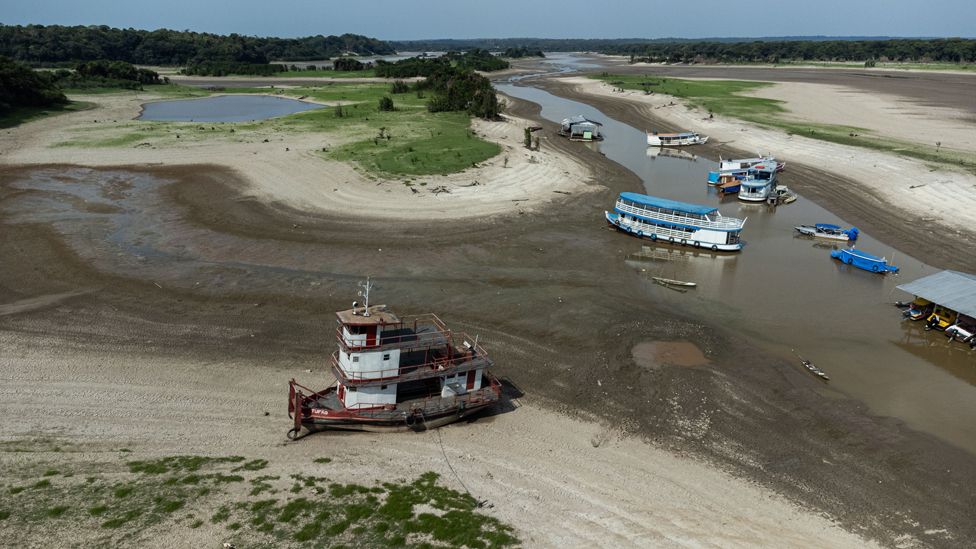-

-
-
Loading

Loading

A severe drought in the Brazilian Amazon is causing significant problems, including disrupting transportation, isolating communities, and leading to the death of wildlife. The Brazilian government has linked the drought to climate change and the El Niño weather phenomenon. As a result, the volume of rainfall in the northern Amazon has fallen below average, and river levels have dropped to near-record lows. This situation poses a threat to the estimated 30 million people living in the Amazon basin. A state of emergency has been declared in Manaus and over 20 other cities. Many rivers have completely dried up, leaving thousands of people stranded in remote villages within the jungle. These villages depend on the rivers for their daily livelihood and transportation, so they are now struggling to go about their daily lives. They must rely on air delivery for food, medicine, and water. The drought has forced some inhabitants, like Raimundo Silva do Carmo, a fisherman and trader, to dig wells by hand in search of water. For instance, the 67-year-old now bathes in and collects water from a well he dug himself in a dry area of Lago do Puraquequara lake in Manaus. The low water levels have also caused a barge carrying vehicles, gas, and supplies to run aground on the banks of the Rio Negro river. It has been stranded there since then. The captain of the barge tugboat, Junior Cesar da Silva, explains that the water was receding quickly, and help has been slow to arrive. Experts suspect that the heat wave and drought may be responsible for the increased number of dead fish and river dolphins (boto) washing up on the shores. The situation has also affected boat pilot Paulo Monteiro da Cruz, who now rows through waters filled with dead fish at Piranha lake, which has been greatly affected by the drought. Researchers from the Mamirauá Institute for Sustainable Development are conducting tests on the water and dead animals found in Lake Tefe to determine the exact cause of their deaths. Indigenous groups, who rely on the rivers for water, food, and transportation of essential goods, have been among the most severely affected. They have been calling on the government to declare a climate emergency and provide more assistance. Although the government has established a task force to deliver food parcels to isolated villages, indigenous groups claim that the situation has only worsened, and they need additional help.